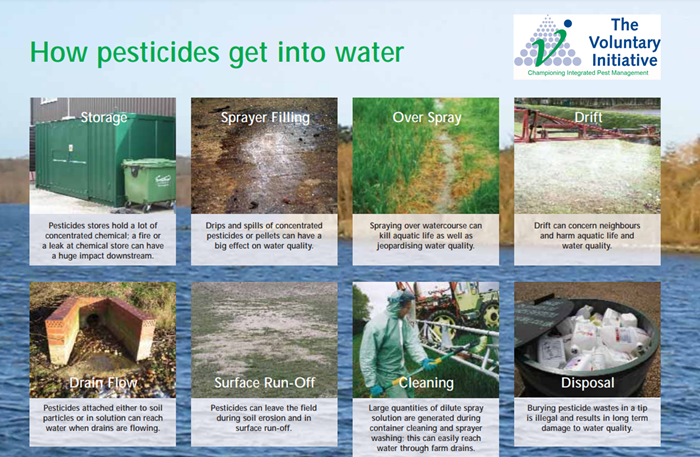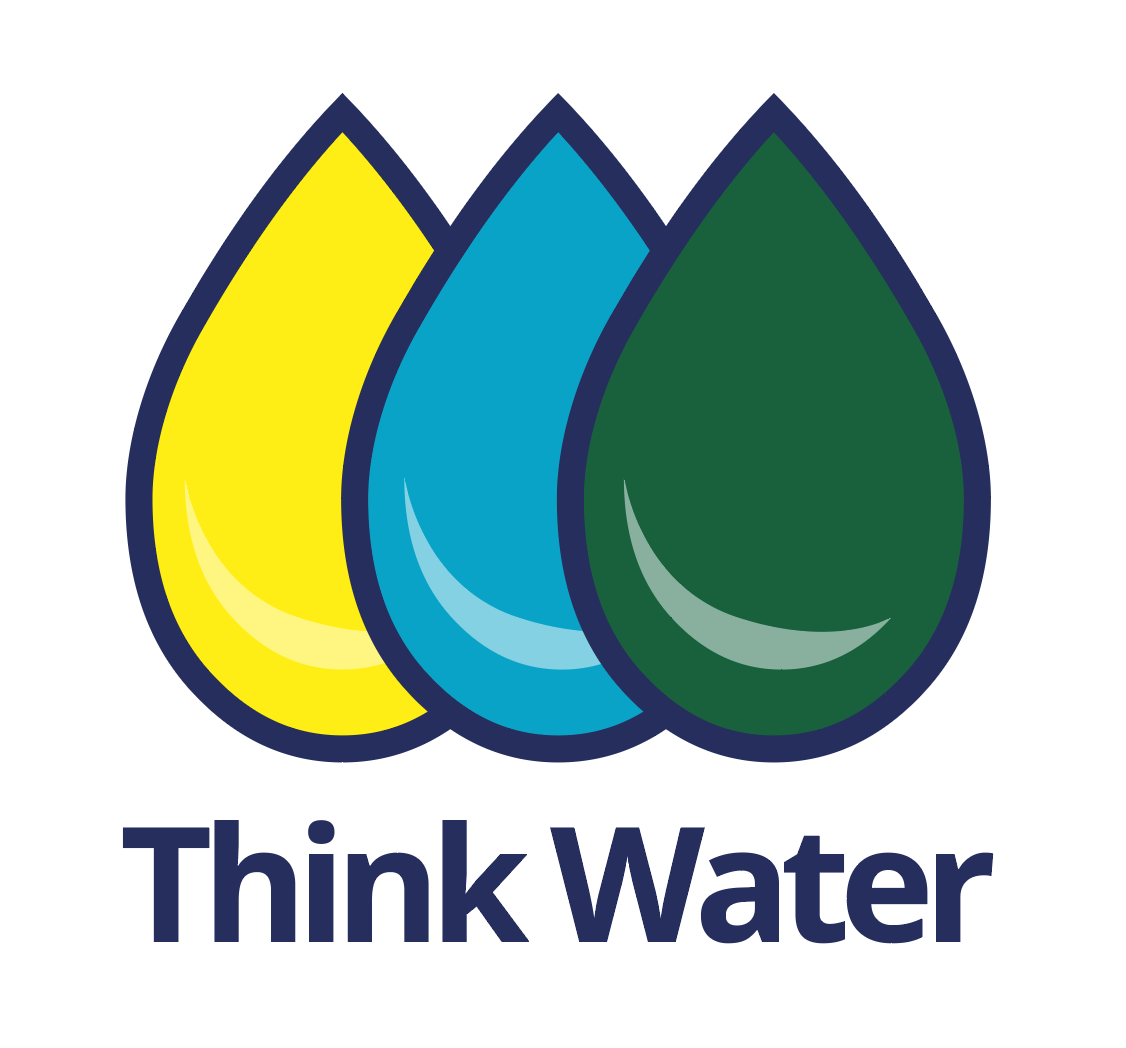Autumn 2023 – Water Stewardship advice from the VI
09 October 2023
At this time of year, when many growers are sowing autumn arable crops, there are some key messages which are worth highlighting regarding the protection of water.
Aims of the Voluntary Initiative (VI) and the importance of water stewardship
One of the aims of the Voluntary Initiative (VI) is to encourage best practice use of plant protection products (PPP’s) as part of an Integrated Pest Management-based (IPM) approach to crop protection. This is an integral part of the VI’s strategy and highlights the agricultural industry’s responsibility to water, biodiversity and the wider environment. At this time of year, when many growers are sowing autumn arable crops, there are some key messages which are worth highlighting.
Think Water!
The Voluntary Initiative Think Water! campaign helps explain the routes that PPP’s can take to water.

When cereal and oilseed rape crops are being treated with herbicide to control weeds (primarily blackgrass), care must be taken to make sure that weather and soil conditions are consistent to those specified on the product label to ensure these active substances don’t find their way to water courses. Quite often, manufacturers provide information on their websites and specific on label requirements that must be met before a product can be used. For example:
https://www.corteva.co.uk/tools-and-advice/kerb-weather-data.html
Planning - The role of agronomists, farm managers and sprayer operators
BASiS qualified agronomists, farmers, farm managers and sprayer operators, each have a specific role to play when recommending, planning and applying plant protection products (PPPs). Whilst profitable, efficient and safe food production are vital, the protection of our environment is also paramount.
Filling and application - safe and effective use of PPP’s
UK sprayer operators are highly trained in the safe use of PPP’s, but it is important to always read the product label(s) before use. This ensures best practice and safe in filling, application, disposal of containers and washing out of the sprayer.
Check where the washings from your sprayer flow to (See: https://voluntaryinitiative.org.uk/legislation/disposal/)
Your efforts to protect water will ensure the industry retains access to effective products to control pests, weeds and diseases through and IPM-based approach.
Continuing professional development (CPD)
It is a legal requirement that all users of professional PPP’s must be trained and hold the appropriate certificate for the equipment used to apply the product. This training includes, how the use of appropriate personal protection equipment (PPE) and how to apply PPPs safely. The VI works to ensure operator training and education is relevant and continues after initial certification.
The National Register of Sprayer Operators (NRoSO) is a VI scheme that currently has about 21,000 members. On joining NRoSO, checks are made that the sprayer operator has the right qualifications for the job, but also they are encouraged to complete continual personal development (CPD) on an annual basis. This ensures NRoSO members are always up-to-date with changes to PPP availability, the latest spraying techniques and tools (such as drift reduction nozzles) and the latest innovation to apply PPP’s safely and effectively. Although NRoSO membership has always been voluntary, the benefits of sprayer operators being members of the Register was quickly acknowledged by UK crop assurance organisations. Most of these specify that for crops, NRoSO membership is compulsory for the sprayer operator. This helps drive professionalism within the industry and demonstrates to Government and policy makers that sprayer operators are competent to do this job.
Ensure you are up- to-date by for example attending the NRoSO training events available this autumn/winter
The future
As new NRoSO members continue to join and the scheme continues to develop programmes of work, the VI continues to work to improve knowledge transfer in both the agricultural and water sectors to protect water, wildlife and the environment.
The focus on the environment will continue and it is important that agronomists, farmers, growers and sprayer operators keep up to date and do their bit to ensure that the UK crop protection industry retains its professionalism and reputation for safe and secure food production.

